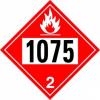Sign in to follow this
Followers
0

A few words about gas safety. New Milford, Ct fatal propane explosion
Started by
50-65,
-
Recently Browsing 0 members
No registered users viewing this page.

Started by
50-65,
No registered users viewing this page.